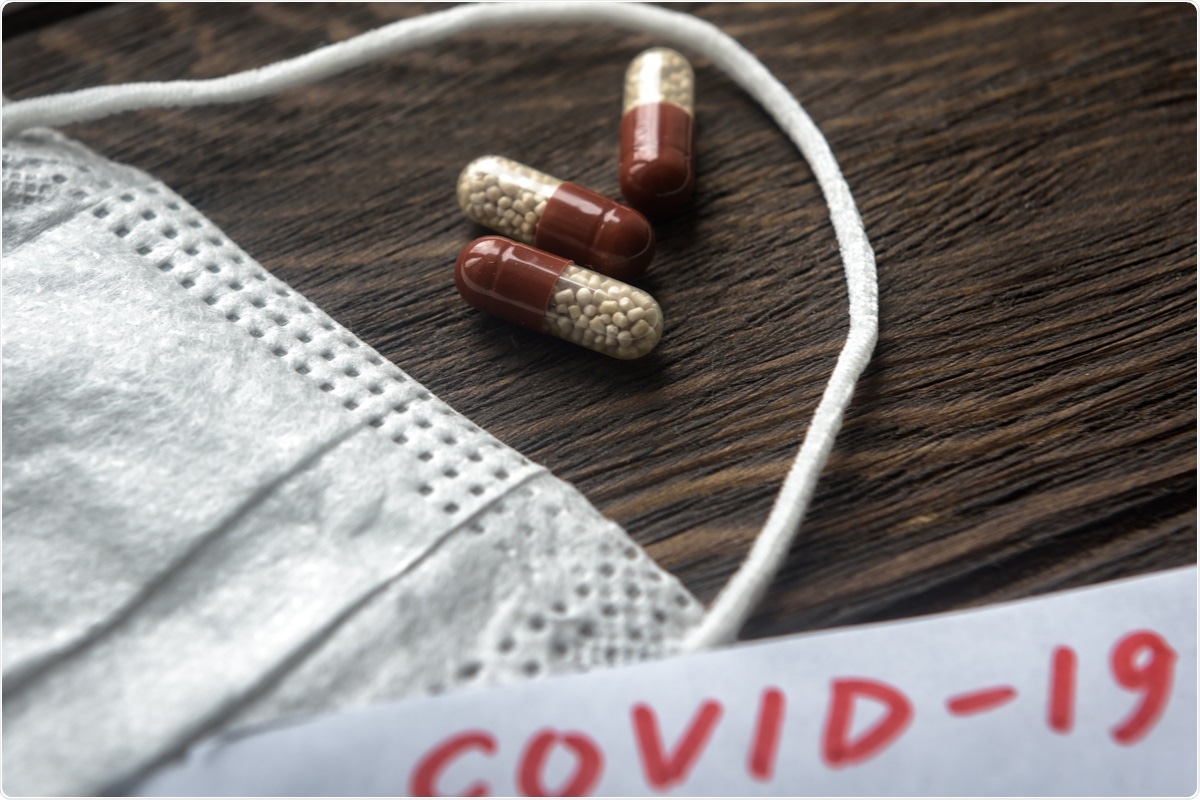The first antiviral drugs effective against coronavirus disease 2019 (COVID-19) were recently approved in the UK and USA. Several more are still being investigated. In the journal Environmental Microbiology, a researcher from the Laboratory of Gene Technology has been exploring what we know so far.
 Study: Host-modifying drugs against COVID-19: some successes, but not yet the breakthrough. Image Credit: Viacheslav Lopatin/ Shutterstock
Study: Host-modifying drugs against COVID-19: some successes, but not yet the breakthrough. Image Credit: Viacheslav Lopatin/ Shutterstock
Tocilizumab
Tocilizumab is an IL-6 receptor inhibitor that can bind the IL-6 receptor to inhibit signal transduction. Greek researchers noticed that in some severe COVID-19 patients, CD14 monocytes showed low expression of the human leukocyte antigen (HLA)-DR. IL-6 was upregulated in these patients and is known to inhibit HLA-DR expression. As well as this, Chinese researchers identified high IL-6 levels as biomarkers of severe COVID-19, alongside viral RNA in the blood.
A small-scale follow-up trial showed fever reduction in all 21 patients administered tocilizumab and the return to normal levels of the infection marker CRP and improved oxygen saturation.
In a larger scale trial, the drug led to a significantly reduced need for mechanical ventilation and death compared to standard therapy, either when administered intravenously or in a subcutaneous manner.
Several trials in the US showed contrasting results, with one showing reduced mortality but increased probability of superinfections, a second showing reduced mortality but only in patients with CRP above a certain baseline when treatment began, and a third showing no effect.
A UK trial showed a 9% reduction in mortality. Several other corporate and international trials continued to show contradictory results. The authors suggest that the variable outcomes highlight problems with smaller clinical trials and suggest that tocilizumab likely has stronger effects in specific populations of patients in specific infection stages.
Anakinra
Anakinra is another IL antagonist that interrupts the IL-1/6 pathways. Early French trials in 12 patients showed a significant decrease of temperature, an inflammation marker and development of oxygen independence, and less need for ventilation. A slightly larger study of 52 French individuals with severe COVID-19 showed a significant reduction in mortality and decreased CRP levels.
Small scale studies in Northern Italy and Milan both showed similar results, with the Milan study exploring the effects of Anakinra with methylprednisolone – which reduced mortality at 28 days to 14%, from 36% in untreated patients.
A Greek trial again showed similar results, with much lower hospitalization rates. One French trial showed contrasting results, with no difference in survival or CRP marker levels by 90 days. The trial was stopped for futility. The researchers examined meta-analysis of the data and suggested that the low CRP cut-off levels for entry into the final study were likely the result of the differing results and that Anakinra likely only shows an effect if administered early.
Baricitinib
Baricitinib is a selective inhibitor of Janus kinases JAK1/2. It shows anti-inflammatory activity and has been approved for arthritis treatment. JAK kinases are tyrosine kinases that transduce cytokine-mediated signals – Baricitinib inhibits this signalling pathway, preventing the triggering of inflammatory signals.
Pre-clinical studies showed effectiveness in preventing inflammation in monkeys infected with COVID-19 but no antiviral activity. Small scale studies showed increased recovery when administered alongside standard therapy, body temperature and CRP level decreases, and a reduction in mortality. One of these studies did result in three out of 15 deaths, with no control cohort for comparison. Trialed alongside an antiviral, the drug showed a small but significant positive effect on recovery but no effect on mortality. A study examining the drug alongside corticosteroids showed a reduction in mortality, with more effect in more severe patients.
Dexamethasone
A corticosteroid that aims to reduce the immune response to prevent inflammation and antibody dependant enhancement of infection, dexamethasone is approved to treat several diseases. A study of 2104 UK patients showed a significant reduction in 28-day mortality. However, in those that did not require oxygen support, death rates were higher on dexamethasone than without. Trials using glucocorticoids were stopped worldwide, but dexamethasone is currently used for more severe cases.
Conclusion
The researchers examined several other drugs, including fluvoxamine – promising, but not enough data yet, methylprednisolone – with some highly conflicting results, hydrocortisone -which showed no benefit and higher risk of death, and inhaled glucocorticoids – which again showed little effect.
As mass vaccination schemes stall and new variants with the ability to evade both natural and vaccine-induced immunity continue to emerge, this review reveals some promising drugs that could help prevent the pandemic from returning.